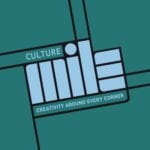Culture Mile School Visits Fund
Apply for up to £600 to visit Culture Mile's amazing cultural venues



A series of lectures presented by Gresham College.
These lectures will be given by Professor Joanna Bourke, Gresham Professor of Rhetoric.
This series of lectures explores six physical maladies that have afflicted people throughout the world: tuberculosis, polio, breast cancer, AIDS, sickle cell disease, and dementia. The 2019-21 Covid pandemic has excited widespread interest in the social, cultural, and political meaning of illness. The scientific frameworks through which societies try to cope with the physical maladies has been shown to be contested, opening up a wider debate about science and society. The history of disease has been characterised by dramatic breakthroughs, bitter clinical rivalries, and multi-billion pound pharmaceutical interventions. These six maladies have been subjected to global campaigns intent on eradication. As an historian of medicine and the body, I will approach these diseases in the context of politics, the history of science, politics, and socio-cultural developments. My aim is to encourage viewers to reflect more deeply on human vulnerability, pain, and mortality. I also seek to show how these maladies are understood and treated globally. The invention, development, and distribution of medicines by “Big Pharma” raises important questions about the balance between the rewards of research and development on the one hand, and public interest, on the other.
These six ailments have been carefully chosen to exemplify certain arguments in the history of disease. Throughout, I ask: are patients responsible for their own afflictions? Patients often internalise negative stereotypes relating to their ailments. How is blame apportioned? Whose suffering counts? Race, ethnicity, gender, class, caste, age, and religion are just some of the categories that influence the way friends, family, community members, and the medical profession respond to suffering people. The lectures explore questions of contemporary interest through the lens of competing scientific/medical expertise, lived experience, and historical change.
A Listing is an individual learning opportunity.